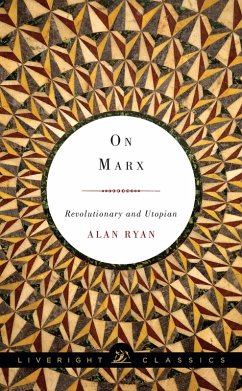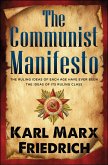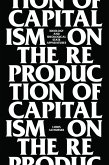A lucid introduction to the philosophical complexities and the practical limits of the political thought of Karl Marx.
When Karl Marx was buried at Highgate Cemetery in North London in 1883, his longtime friend and collaborator, Friedrich Engels, remarked that he was "above all a revolutionary." For Marx, the struggle to accurately describe or interpret the world in rational terms was not enough; the point of politics and philosophy was not to diagnose human society but to change it. According to Marx, history was defined by class conflict, with the state heretofore existing as a medium through which the ruling classes can exploit the labor of the productive classes. Only through revolution could true self-government be achieved with the ultimate goal of achieving a stateless, self-administering society free of coercive law, police, and military forces. Marx spent most of his adult life dedicated to uniting the radical working-class movements of Europe around this central idea.
In On Marx, Alan Ryan examines Marx's political and economic philosophy within the Victorian context of Marx's own life and times as well as glancing forward to the uses and abuses of his ideas by his many successors. Tracing Marx's influences from Hegel to Feuerbach, from French socialism to British political economy, and documenting his ideological battles with his contemporaries, Ryan provides a sterling explication and critique of Marx's theories of alienation, surplus value, class struggle, and revolution. Situating Marx into the framework of everyday politics is never easy, but this one volume provides the clearest, most accessible introduction to Marx's theories in recent years.
On Marx: Revolutionary and Utopian features:
• a chronology of Karl Marx's life
• an introduction and text by Alan Ryan that provides crucial context and cogent analysis
• key excerpts from: "Notes on James Mill," The German Ideology, "Theses on Feuerbach," The Communist Manifesto, Capital, The Civil War in France, and Critique of the Gotha Program
Hinweis: Dieser Artikel kann nur an eine deutsche Lieferadresse ausgeliefert werden.
When Karl Marx was buried at Highgate Cemetery in North London in 1883, his longtime friend and collaborator, Friedrich Engels, remarked that he was "above all a revolutionary." For Marx, the struggle to accurately describe or interpret the world in rational terms was not enough; the point of politics and philosophy was not to diagnose human society but to change it. According to Marx, history was defined by class conflict, with the state heretofore existing as a medium through which the ruling classes can exploit the labor of the productive classes. Only through revolution could true self-government be achieved with the ultimate goal of achieving a stateless, self-administering society free of coercive law, police, and military forces. Marx spent most of his adult life dedicated to uniting the radical working-class movements of Europe around this central idea.
In On Marx, Alan Ryan examines Marx's political and economic philosophy within the Victorian context of Marx's own life and times as well as glancing forward to the uses and abuses of his ideas by his many successors. Tracing Marx's influences from Hegel to Feuerbach, from French socialism to British political economy, and documenting his ideological battles with his contemporaries, Ryan provides a sterling explication and critique of Marx's theories of alienation, surplus value, class struggle, and revolution. Situating Marx into the framework of everyday politics is never easy, but this one volume provides the clearest, most accessible introduction to Marx's theories in recent years.
On Marx: Revolutionary and Utopian features:
• a chronology of Karl Marx's life
• an introduction and text by Alan Ryan that provides crucial context and cogent analysis
• key excerpts from: "Notes on James Mill," The German Ideology, "Theses on Feuerbach," The Communist Manifesto, Capital, The Civil War in France, and Critique of the Gotha Program
Dieser Download kann aus rechtlichen Gründen nur mit Rechnungsadresse in A, D ausgeliefert werden.
Hinweis: Dieser Artikel kann nur an eine deutsche Lieferadresse ausgeliefert werden.









